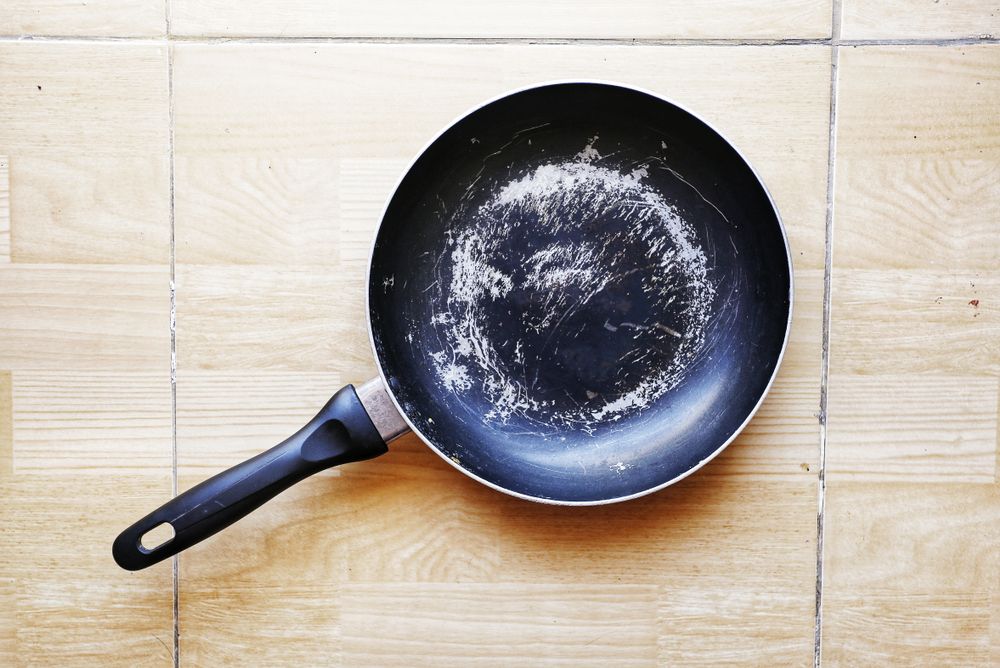
Teflon-coated cookware is the ultimate in cookware convenience. It keeps food from sticking to the pan, allows the diet conscious to use less fat while cooking, and makes washing up easier. Teflon, known chemically as polytetrafluoroethylene (PTFE), is a plastic-like substance made up of a complex mixture of perfluorinated chemicals (PFCs). All good non-stick coatings intended for use in cooking are made with PTFE. The difference between brands lies in the proportion in which PTFE is blended with other materials.
Teflon is composed of several toxic chemicals that can be released from heated pans into the air and into food. The more often you use your pans at high temperatures, the quicker the coating will break down and emit tiny particles and gases into the air. As this happens (usually within about two years of continual use), washing Teflon-coated pans by hand or in a dishwasher with harsh detergents may accelerate the process further.
The chemicals emitted by Teflon are harmful to humans and deadly, even in minute amounts, to pet birds. Even if you’ve never used a Teflon-coated pan, there’s a good chance that you are carrying some of Teflon’s breakdown products in your body because the substance has a wide range of uses outside the home. PFCs have been shown to accumulate in human organs like the liver, gall bladder and thyroid gland. In other primates, exposure to one of Teflon’s breakdown products, PFOA, has led to hypothyroidism (the condition of having an underactive thyroid). This effect is also apparent in human studies. A prolonged state of hypothyroidism is a risk for obesity, insulin resistance and thyroid cancer.
Teflon may reduce the amount of fat we cook with, make washing up easier and clothes and carpets last longer; but it is a frivolous and unnecessary substance the benefits of which pale beside the possibility of killing beloved pets and raising your risk of heart disease, diabetes, birth defects and cancer.

